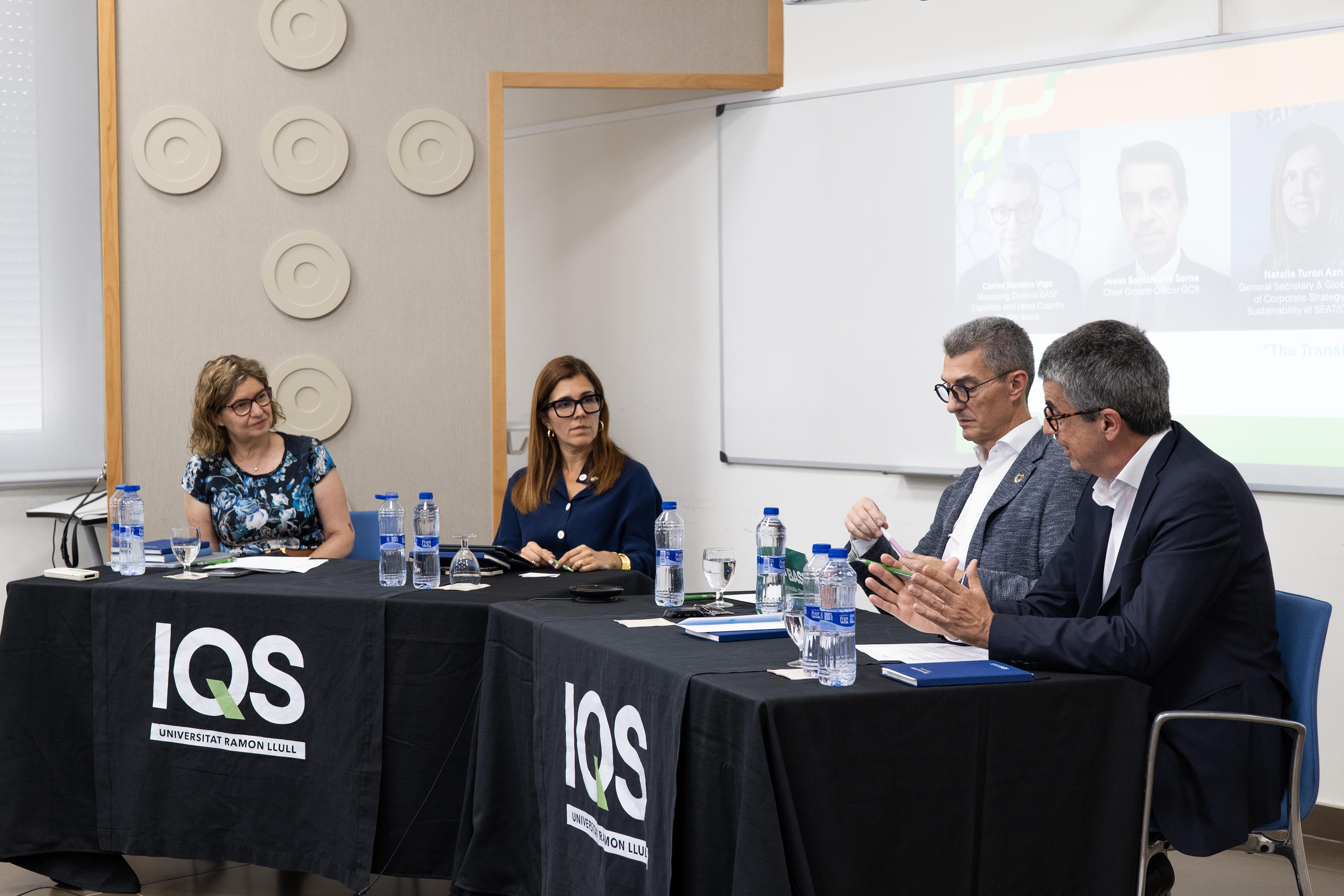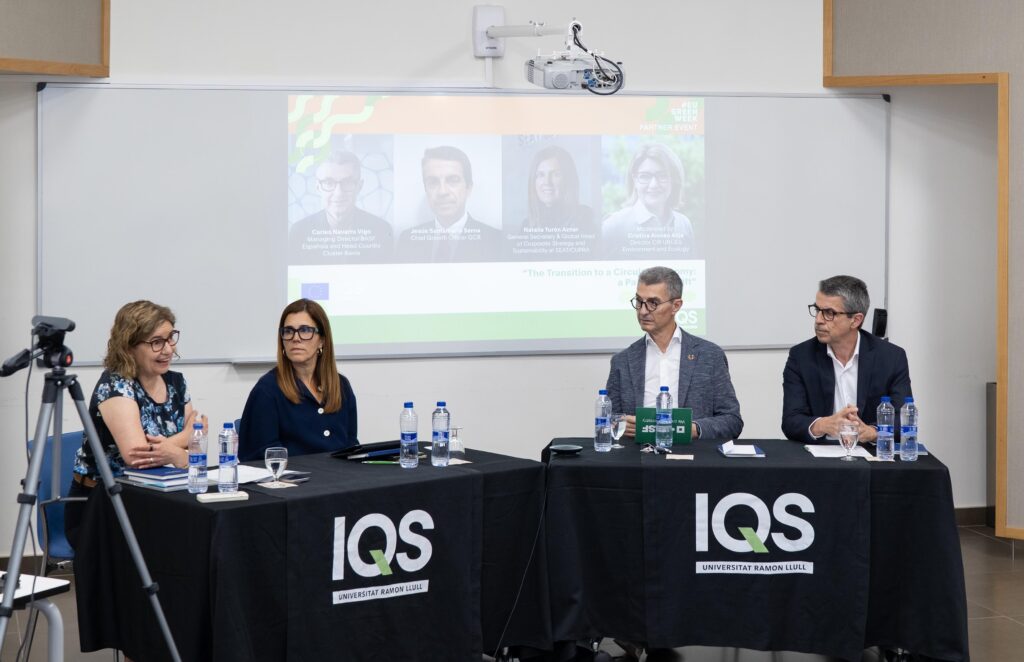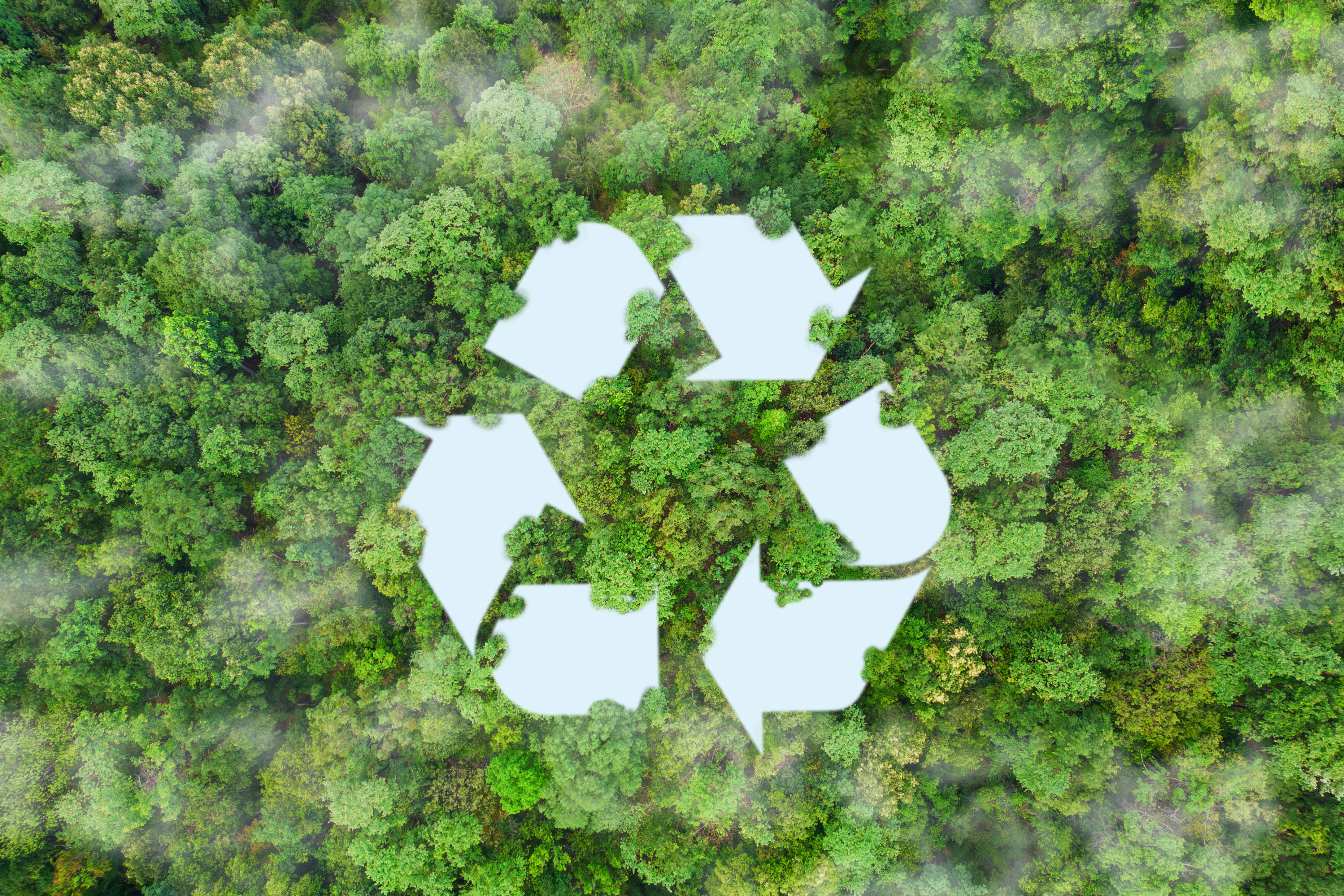What steps are being taken to move from a linear model based on “extract, produce, and dispose” to a circular one that optimizes the use of resources and minimizes waste? This was one of the key issues addressed at the roundtable “The transition to a circular economy: a paradigm shift” organized by IQS within the framework of EU Green Week 2025, an initiative from the European Commission focused on promoting a more sustainable future.
From waste to resources: how industries are transforming their production models towards circularity

The event brought together relevant voices from the business, academic, and technological fields including: Natalia Turón, general secretary and global director of Corporate Strategy and Sustainability at SEAT S.A.; Carles Navarro, general director of BASF Española; Jesús Santamaría, director of Growth at GCR; and Cristina Alonso, director of the UNIJES Reference Research Centre in Ecology and the Environment at IQS, who also moderated the conversation.
95% of industries are committed to circularity
Cristina Alonso opened the roundtable by highlighting a revealing fact: 95% of industries plan to invest in circular economy solutions in the next three years, according to the World Economic Forum’s Circular Transformation of Industries report. This statistic reinforces the urgency and feasibility of changing the production model. Within this context, she also announced the new IQS Master’s Degree in Circular Economy that is being launched in October as a commitment to educating future professionals who are capable of leading this transformation.
Automotive: recycled materials as a commitment to the future
From SEAT, Natalia Turón argued that “circularity is not a cost, but an investment,” and stressed that it is part of the company’s strategic plan to achieve climate neutrality by 2050. She highlighted concrete advances such as the use of recycled and renewable materials in vehicle interiors such as SEAQUAL® YARN, obtained from marine plastic, or Dynamica® microfiber.
“We are developing state-of-the-art interiors made with recycled and renewable materials for our cars. The goal is to achieve a 40% share of circular materials in new models by 2040,” she stated. Turón also celebrated that in 2024 SEAT achieved the best results in sustainability to date, including a nearly 80% reduction in waste generation since 2010.
The chemical industry: between the ideal and reality

Carles Navarro, from BASF, called for a more pragmatic vision: “The circular economy is an attractive concept, but difficult to implement. We should talk about a circular-spiral economy,” he said, referring to the technical and logistical challenges that still persist.
BASF has set itself the goal of reaching 10 billion euros in sales of circular materials by 2030. Navarro insisted on changing the perspective about waste: “It isn’t waste, but resources that are not being used properly.”
He also highlighted his company’s collaboration with Inditex, which has made it possible to launch jackets produced 100% with loopamid, a polyamide made entirely from textile waste. “With this project we wanted to send a message to the entire textile industry: circularity is possible.”
In addition, he stressed the importance of strengthening the connection between higher education and industry and criticized the crafting of public policies: “To make industrial policy, you first have to understand industry, and many politicians do not understand it.”
Recycled plastic: available technology, but with structural barriers
From the plastics recycling sector, Jesús Santamaría stated that the technology already allows obtaining recycled polymers of high quality and performance. “Therefore, there is no excuse not to use recycled plastic,” he said strongly.
However, he warned about the gap between the current capacity of mechanical recycling in Europe and the future demand generated by regulations such as the one that will regulate packaging in 2030. “The regulatory framework helps transform the industry, but we also need institutional support,” he said.
When asked about the skills companies are looking for in terms of circularity, Santamaría highlighted the importance of regulatory knowledge and, above all, firm conviction: “We need professionals who believe in sustainability. There will be headwinds and they must persevere.”










